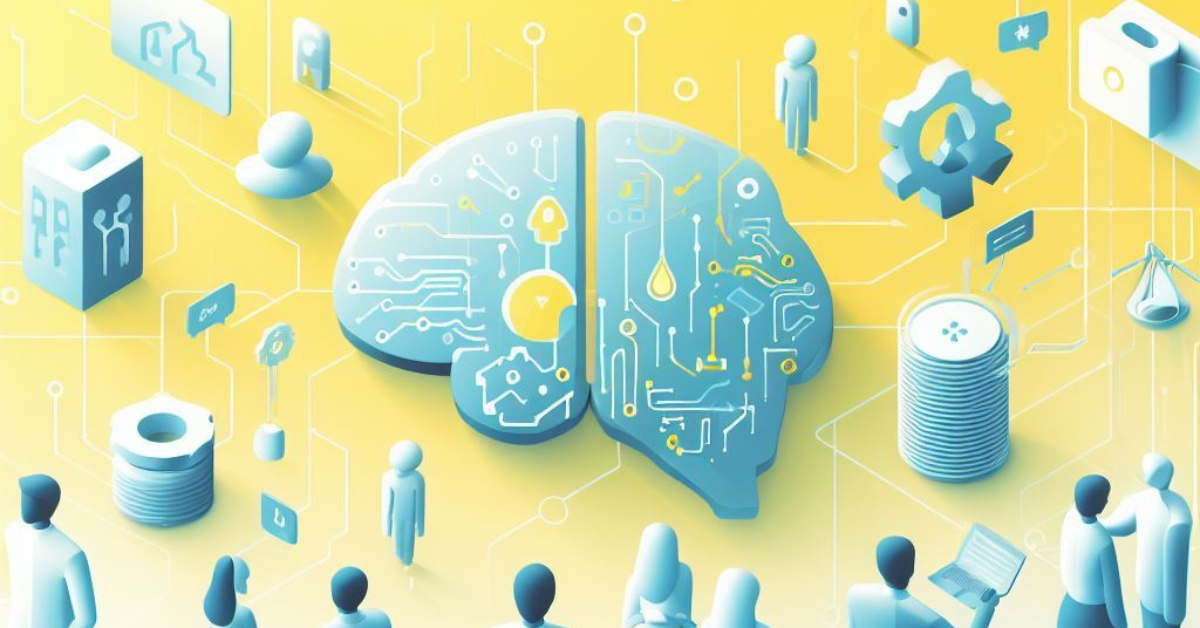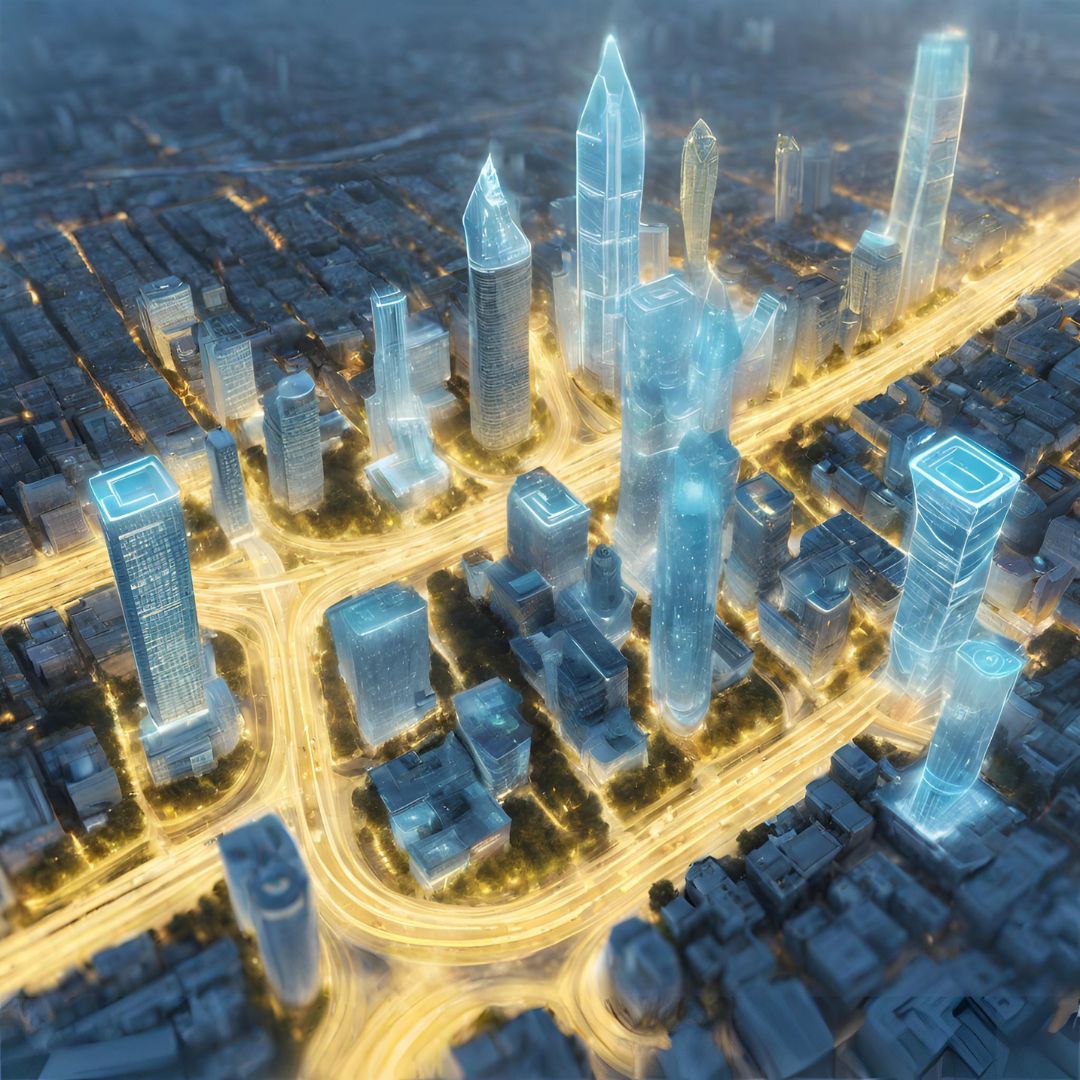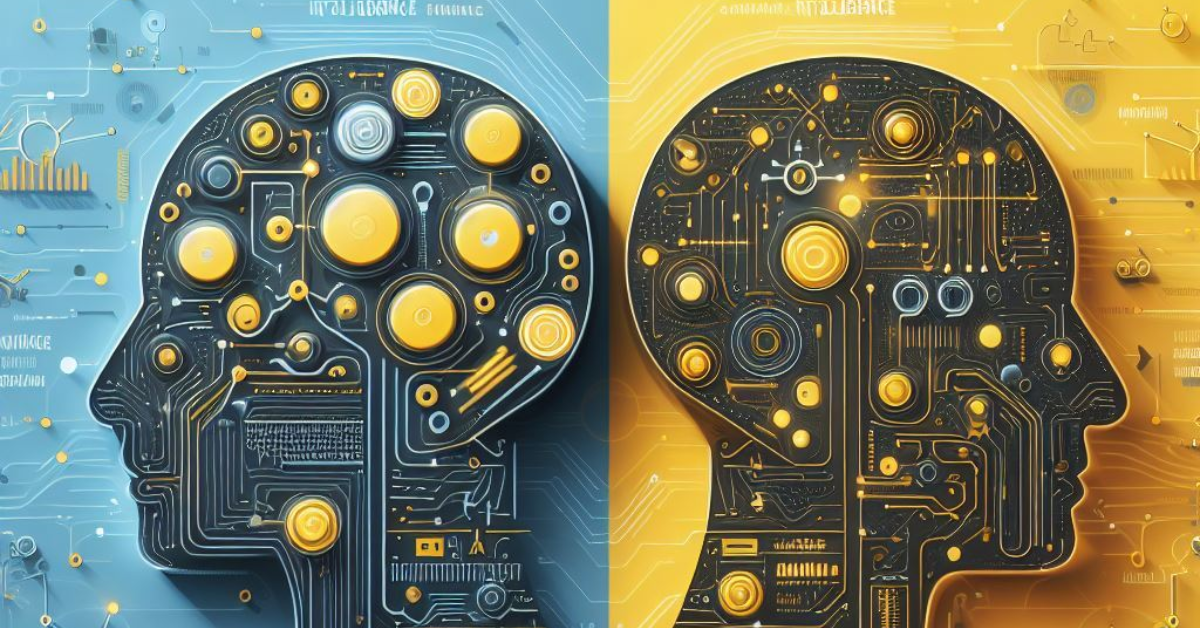Introduction to Artificial Intelligence
October 3, 2023 | by insighttechdaily.com

The Fascinating World of AI: Unveiling the Power of Intelligent Machines
In this article:
Artificial intelligence (AI) is a revolutionary field that continues to amaze and captivate our imagination. As we delve into the fascinating world of AI, we unlock the power of intelligent machines that are designed to think, understand, and learn. The possibilities seem endless as we witness AI making significant strides in various industries and everyday life.
From advancements in natural language processing and image recognition to groundbreaking developments in robotics and autonomous vehicles, the potential of AI knows no bounds. Imagine a world where machines can comprehend complex human language, analyze vast amounts of data in seconds, and make decisions with unmatched accuracy. It’s a paradigm shift that propels us into the future and reshapes the very fabric of our lives. AI is unearthing new opportunities that enable us to conquer challenges that were once deemed insurmountable. This is just the beginning of an extraordinary journey into the untapped potential of intelligent machines, and the best part? We are witnessing it unfold right before our eyes.
From Science Fiction to Reality: How Artificial Intelligence is Revolutionizing Industries
In a whirlwind of technological advancements, artificial intelligence (AI) has transformed from a mere concept in science fiction to a disruptive force in various industries. The once elusive dream of intelligent machines is now a reality, revolutionizing the way we live and work. From healthcare to transportation, AI is making its mark by streamlining processes, enhancing efficiency, and unlocking new possibilities.
Industries across the board are embracing the power of AI to augment their capabilities and drive innovation. In healthcare, for instance, AI-driven diagnostics are enabling early detection of diseases, saving countless lives. Furthermore, AI-powered robots are revolutionizing manufacturing processes, increasing productivity and precision. Whether it’s improving customer experiences through personalized recommendations or optimizing supply chain management, AI is reshaping industries in ways only imaginable in science fiction. The future has arrived, and it’s an exciting time to witness the transformative potential of AI in industries worldwide.
Understanding the Building Blocks: Exploring the Key Concepts of Artificial Intelligence
Artificial intelligence, or AI, is a groundbreaking field that is reshaping the way we interact with technology. At its core, AI is all about creating intelligent machines that can perform tasks that would typically require human intelligence. It is a field that blends computer science, mathematics, and cognitive science and is driven by the goal of creating machines that can think, learn, and make decisions just like humans.
One of the key concepts that form the foundation of AI is machine learning. This is a branch of AI that focuses on building algorithms that allow machines to learn from data and improve their performance over time. By feeding large amounts of data into these algorithms, machines can identify patterns and make accurate predictions or decisions based on that information. Machine learning is what enables applications like voice recognition, recommendation systems, and autonomous vehicles, making them more intelligent and efficient than ever before.
The field of AI is also heavily influenced by the concept of neural networks. Inspired by the human brain, neural networks are algorithms that are designed to process information in a way that mimics the way our brains work. These networks consist of interconnected layers of artificial neurons that work together to analyze and interpret complex data. Neural networks have been instrumental in advancing fields like image recognition, natural language processing, and even medical diagnosis, opening up a world of possibilities for AI.
Artificial intelligence (AI) is reshaping technology by creating intelligent machines that can perform tasks requiring human intelligence.AI blends computer science, mathematics, and cognitive science to create machines that think, learn, and make decisions like humans.
Machine learning is a key concept in AI that focuses on building algorithms for machines to learn from data and improve their performance over time.
By feeding large amounts of data into machine learning algorithms, machines can identify patterns and make accurate predictions or decisions.
Machine learning enables applications like voice recognition, recommendation systems, and autonomous vehicles to be more intelligent and efficient.
Neural networks are another important concept in AI inspired by the human brain’s functioning.
Neural networks consist of interconnected layers of artificial neurons that process information similarly to our brains.
Neural networks have advanced fields such as image recognition, natural language processing, and medical diagnosis.
The Evolution of Machine Learning: Unleashing the Potential of Artificial Intelligence Algorithms
Machine learning has come a long way since its inception, and its evolution has been nothing short of remarkable. From its humble beginnings as a concept rooted in computational algorithms, machine learning has now entered a phase of unrivaled potential. With each passing day, new algorithms are developed and refined, pushing the boundaries of what intelligent machines can achieve. It is truly an exciting time to witness the rapid growth and impact of machine learning in various industries and sectors.
The power of AI algorithms is being harnessed in fields such as healthcare, finance, transportation, and beyond. These algorithms have the ability to learn from vast amounts of data and make predictions, decisions, and recommendations that were once only within the realm of human expertise.
The potential for revolutionizing industries and improving efficiency is immense. As machine learning continues to evolve, we are witnessing a remarkable transformation in the way we solve complex problems, analyze data, and make informed decisions. The untapped potential of AI algorithms is truly awe-inspiring, and the possibilities seem endless.
Introduction to Artificial Intelligence in Everyday Life: Discovering the Applications that Shape Our World
In today’s rapidly advancing technological landscape, artificial intelligence (AI) has become an integral part of our everyday lives, shaping the world in ways we could never have imagined. From personalized digital assistants like Siri and Alexa to recommendation algorithms that tailor our shopping experiences, AI is seamlessly integrated into various aspects of our daily routines. It’s truly fascinating to witness how these intelligent systems have revolutionized the way we communicate, work, and even entertain ourselves.
AI is not limited to just consumer applications; it has also made significant strides in sectors such as healthcare, finance, and transportation. In healthcare, AI-powered diagnostic tools and predictive analytics improve the accuracy of diagnoses and enhance patient care. Financial institutions leverage AI algorithms to detect fraud and manage risk, ensuring the security of transactions.
Autonomous vehicles, enabled by AI, are poised to revolutionize transportation, making our roads safer and more efficient. The applications of AI in everyday life are endless, and they hold immense potential to positively impact society on a global scale. The world we live in today is truly remarkable, and there’s no doubt that AI will continue to shape our everyday experiences as we move into the future.
Unraveling the Mystery: Demystifying Deep Learning and Neural Networks
Deep learning and neural networks have long been buzzwords in the field of artificial intelligence, captivating the minds of researchers and enthusiasts alike. These cutting-edge technologies are the driving force behind the incredible advancements in AI that we witness today.
But what exactly are deep learning and neural networks? In simple terms, deep learning refers to the ability of machines to learn and make decisions based on vast amounts of data. Neural networks, on the other hand, are algorithms inspired by the structure and functioning of the human brain, allowing machines to process and understand complex information. Exciting, isn’t it?
What makes deep learning and neural networks truly fascinating is their ability to imitate the learning process of the human brain. By analyzing and recognizing patterns in data, these powerful algorithms can extract meaningful insights, detect anomalies, and even solve complex problems with incredible accuracy.
From image recognition and natural language processing to autonomous driving systems and personalized recommendation engines, the applications of deep learning and neural networks are virtually limitless. As we unravel the mysteries behind these technologies, we unlock a world of possibilities, where intelligent machines can assist and augment human capabilities, pushing the boundaries of what we once thought was possible.
Introduction to Artificial Intelligence (AI) Ethics: Navigating the Moral and Social Implications of Intelligent Systems
Artificial intelligence (AI) has undoubtedly revolutionized numerous industries, from healthcare and finance to transportation and entertainment. However, as these intelligent systems become more integrated into our daily lives, it becomes crucial to address the moral and social implications they bring. The rapid advancements in AI technology have resulted in ethical dilemmas that need to be navigated, to ensure the responsible development and use of these intelligent machines.
One of the primary concerns surrounding AI ethics is the potential loss of human control. As intelligent systems become more powerful and autonomous, there is a valid fear that humans may lose their ability to intervene or make informed decisions. This raises questions about accountability and responsibility. Who should be held accountable for the actions of an AI system?
How can we ensure that these systems perform ethically and in line with human values? These concerns highlight the importance of developing robust frameworks and regulations to guide the design and deployment of AI systems. It is an exciting and challenging frontier that demands careful navigation to preserve our moral and social fabric in this ever-evolving era of intelligent machines.
The Future of AI: Predicting the Next Frontier of Artificial Intelligence
As we stand on the cusp of a new era, the future of artificial intelligence holds immense promise and potential. The rapid advancements in machine learning, coupled with the exponential growth in computing power, are paving the way for unprecedented breakthroughs. From autonomous vehicles that navigate our roads to virtual assistants that anticipate our needs, the next frontier of AI is poised to revolutionize our lives in ways we can only begin to imagine.
One of the key areas where AI is expected to make significant strides is in healthcare. Imagine a world where diseases can be detected and diagnosed accurately at an early stage, thanks to AI-powered medical imaging and predictive analytics. The impact on patient outcomes and the efficiency of healthcare systems could be nothing short of transformative.
Furthermore, AI algorithms have the potential to revolutionize drug discovery and development, shortening the time it takes to bring life-saving treatments to market. With every leap forward, the future of AI holds the promise of improving our well-being and extending the boundaries of what is possible.
Introduction to Artificial Intelligence (AI) in the Workforce: Exploring the Impact of Automation on Jobs and Skills
As we step into the era of artificial intelligence (AI), the impact of automation on jobs and skills becomes more prevalent than ever before. Exciting advancements in AI technology are revolutionizing various industries, transforming the way businesses operate and individuals work. The integration of intelligent machines in the workforce presents a unique opportunity for productivity growth, efficiency improvements, and the exploration of new frontiers.
However, this shift also brings forth challenges and uncertainties, leading to concerns about job displacement and the demand for evolving skill sets. It is crucial for individuals and businesses alike to understand the potential impact of automation on jobs and skills, and to navigate this new landscape with adaptability and foresight.
Emerging AI technologies, such as machine learning algorithms and robotic process automation, have the potential to automate manual tasks, streamline processes, and augment human capabilities. This exciting prospect opens the door to a future where repetitive, mundane tasks are handled by intelligent machines, freeing up human workers to focus on more strategic and creative endeavors. Industries such as manufacturing, logistics, and customer service are already experiencing significant transformations, with AI-powered systems taking over repetitive tasks and improving operational efficiency.
The introduction of automation in these sectors not only enables faster production rates and higher accuracy but also creates opportunities for workers to upskill and take on more complex roles. By embracing this AI revolution and harnessing the power of intelligent machines, individuals and businesses can unlock immense potential for growth, innovation, and productivity.
Embracing the AI Revolution: How Individuals and Businesses Can Harness the Power of Artificial Intelligence
Artificial Intelligence (AI) has evolved from a mere concept in science fiction to a groundbreaking reality that is reshaping industries across the globe. It is no longer a distant dream but a powerful tool that individuals and businesses can harness to revolutionize their operations and achieve unprecedented levels of success. The potential of AI knows no bounds, and those who embrace this technological revolution with excitement and determination are poised to be the frontrunners in this new era.
For individuals, AI offers countless opportunities for personal growth and development. From intelligent personal assistants that streamline daily tasks to AI-powered learning platforms that cater to individual needs, the world is at your fingertips. With the power of AI, you can unlock your creativity, augment your decision-making abilities, and obtain personalized insights to overcome challenges and achieve your goals.
The possibilities are endless, and the only limit is your imagination. As we venture further into the AI revolution, the key lies in embracing this powerful technology and harnessing its potential to transform our lives for the better.
In the business realm, AI has become the driving force behind innovation and disruption. From enhancing customer experiences through advanced analytics to optimizing operations through automation, AI is revolutionizing the way organizations operate. By harnessing the power of AI, businesses can gain a competitive edge by extracting valuable insights from vast amounts of data, making data-driven decisions, and automating repetitive tasks.
Moreover, AI can empower employees to focus on value-added activities, fostering creativity and problem-solving. In this rapidly changing landscape, companies that jump on the AI bandwagon will be well-positioned to adapt and thrive in the face of constant technological breakthroughs. It is time for businesses to embrace the AI revolution and capitalize on the immense opportunities that lie ahead.
FAQs
What is artificial intelligence (AI)?
Artificial intelligence (AI) refers to the development of intelligent machines that can perform tasks that typically require human intelligence. These machines are designed to learn, reason, and problem-solve, making them capable of mimicking human cognitive abilities.
How is AI revolutionizing industries?
AI is revolutionizing industries by automating processes, improving efficiency, and enabling new possibilities. It has the potential to transform healthcare with personalized medicine, enhance customer experiences in retail, optimize manufacturing processes, and revolutionize transportation systems, among many other applications.
What are the key concepts of Artificial Intelligence (AI)?
The key concepts of AI include machine learning, natural language processing, computer vision, and robotics. Machine learning allows machines to learn from data and improve their performance over time. Natural language processing enables machines to understand and respond to human language. Computer vision enables machines to interpret and understand visual information. Robotics combines these concepts to create physical machines capable of performing tasks.
How does machine learning contribute to the evolution of Artificial Intelligence?
Machine learning plays a crucial role in the evolution of AI by enabling machines to learn from data and improve their performance without being explicitly programmed. It allows AI algorithms to analyze vast amounts of data, find patterns, and make predictions or decisions based on that data.
How is Artificial Intelligence applied in everyday life?
AI is applied in various aspects of everyday life, such as virtual assistants like Siri and Alexa, personalized recommendations on streaming platforms, fraud detection in financial transactions, autonomous vehicles, and even medical diagnosis and treatment recommendations.
What is deep learning and neural networks?
Deep learning is a subset of machine learning that utilizes neural networks, which are inspired by the structure of the human brain. Neural networks consist of interconnected nodes or “neurons” that process and transmit information. Deep learning and neural networks have revolutionized AI by enabling machines to learn complex patterns and make sophisticated decisions.
What are the ethical implications of AI?
The rapid advancement of AI raises ethical concerns regarding privacy, bias in algorithms, job displacements, and the potential for AI to be used for malicious purposes. It is crucial for individuals and businesses to navigate these ethical implications and ensure the responsible development and use of AI.
What does the future hold for Artificial Intelligence?
The future of AI holds tremendous potential for innovation and advancement. It is anticipated that AI will continue to evolve and transform various industries, leading to new opportunities and challenges. As technology progresses, AI may become even more integrated into our daily lives, revolutionizing the way we live, work, and interact with the world.
How will Artificial Intelligence impact the workforce?
AI has the potential to automate certain tasks and jobs, leading to concerns about job displacements. However, it is also expected to create new job roles and opportunities as AI technologies continue to advance. It is important for individuals to adapt and acquire new skills that complement AI, ensuring a smooth transition in the workforce.
How can individuals and businesses harness the power of Artificial Intelligence?
Individuals and businesses can harness the power of AI by staying informed about AI advancements, exploring its applications in their respective fields, and investing in AI technologies and talent. It is important to embrace AI as a tool for innovation and efficiency,
Also Read
A. Overview of AI as a Field
B. The Evolution of AI
C. Significance of Defining AI
Visit Artificial Intelligence
RELATED POSTS
View all


